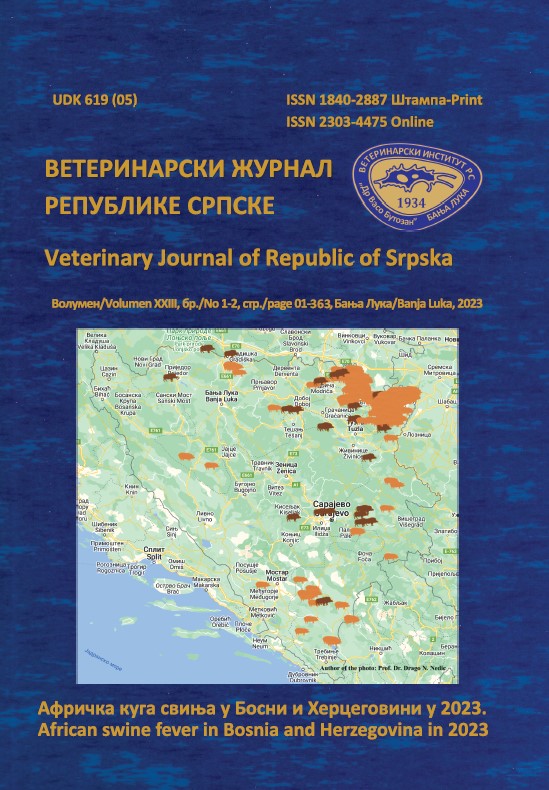THE EFFECT OF ESSENTIAL OILS ON PATHOGENIC BACTERIA IN MEAT
DOI:
https://doi.org/10.7251/VETJEN2301258VAbstract
Meat is a nutritionally valuable food which is susceptible to microbiological contamination and spoilage. Major foodborne pathogenic bacteria, such as Salmonella spp., Listeria monocytogenes and Yersinia enterocolitica, are often associated with meat. These causative factors are at the top of the list of reported zoonoses in humans. In order to increase the microbiological quality of meat, alternative substances have been used in recent decades, including essential oils, compounds obtained by extraction from plants, which are a “safe” alternative to chemical and synthetic additives, in order to achieve antimicrobial and antioxidant effects. Many studies show the antibacterial effect of essential oils. The effect of essential oils on bacteria includes the inhibition of growth (bacteriostatic effect) or destruction of bacteria (bactericidal effect). This paper presents commercially available essential oils recognized as safe for use in food industry, their antibacterial effects against food-borne bacteria in vitro, the mechanisms of action of these essential oils on Gram-positive and Gram-negative bacteria, as well as their application on a meat model.

